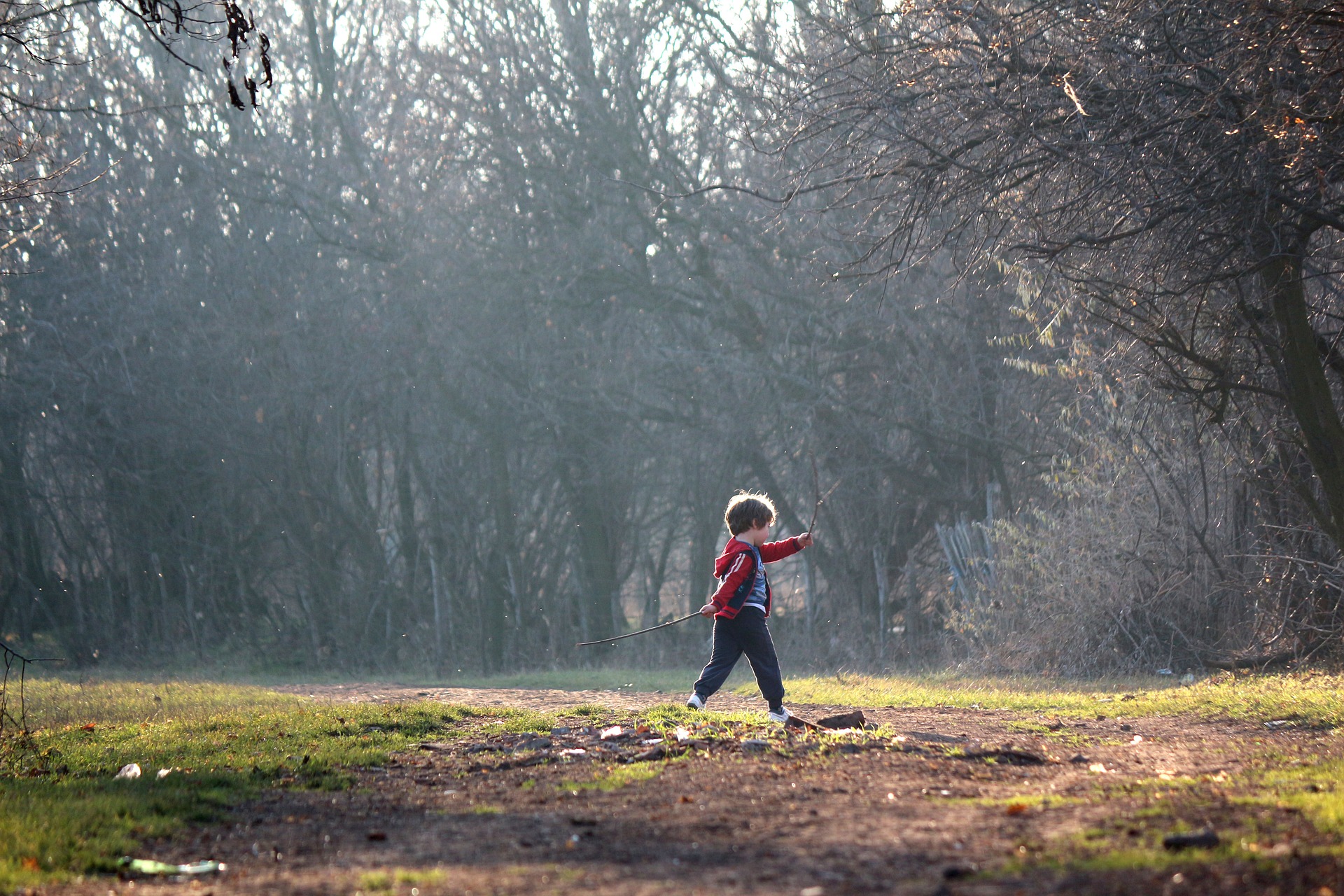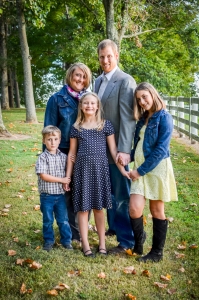His eyes looked up at me with the most lively gaze I’ve ever seen. Dancing in those big brown pools was a story of heroes and adventure and mystery and excitement. His hands waved around emphatically as he jumped from foot to foot, bursting with energy, alive in his imagination.
 Welcome to my son’s World of Wonder.
Welcome to my son’s World of Wonder.
Oh, there are so many times I wish I could join him there. I love the way he sees the world around him, full of potential, full of life. Behind every tree is a villain, between each home a person needing rescued, and around each corner another adventure in which he gets to plays a starring role.
The story is so big and so beautiful, grand its design and boundless in its depth.
I often look at children in church and wonder, “Are we giving them a big enough God?” If their world of imagination is so big, are the stories we tell them, big enough to fill the space?
A lot of the Bible stories I hear in church are just that…stories. They have a limited scope, beginning and end. They have limited heroes and villians like David and Goliath and Daniel and the lions and Jonah and the Whale. They have limited life lessons like “Be brave because God is with you” and “Be obedient when God tells you what to do.”
Recently, I heard Phil Vischer, creator of Veggie Tales and more recently Buck Denver’s What’s in the Bible series, put it this way: “We tend to give kids superficial lessons in the Christian faith but we’ve found that superficial teaching leads to superficial Christians. The formula for teaching Scripture to kids has become a biblical value + a verse to back it up + a song to make it memorable”.
We have been given the greatest story of all time through the person of Jesus Christ and the revealed Word in Scripture. It is truly THE story of all stories. So much so that nearly every story we can think of follows the pattern of this one, even those stories in my son’s imagination. It goes something like this:
All is good. Evil comes on the scene. All is not good. A hero is needed. A hero comes and vanquishes evil. All is good again.
Kinda like…
When God created the world, He declared all was good. Evil entered the world through sin and what was once good began to experience the consequences of that sin. A hero was needed to redeem mankind. Jesus came to be that hero, to once again make all things new. He vanquished sin and death and made His goodness available to all once again.
Catherine Stonehouse, author and researcher on the spiritual formation of children, shares, “Can children grasp the full meaning of Christ’s coming, death, and resurrection? Can we as adults? No, but awareness of the mystery draws us to explore, wonder, and discover more and more, year after year.”
So often we stop short of giving children the deeper context to the stories because we are afraid the theology will be too deep for them to comprehend. When faced with this question, Phil Vischer responded by saying, “Kids can learn more than we think. Adults can learn less than we would hope. We consistently underestimate what kids are capable of learning and overestimate what adults will learn. Kids still ask questions; grown ups stop asking questions.”
And therein lies the wonder… the beautiful mystery that is our faith.
Precisely because we do not have all the answers and we cannot explain all the mysteries can we rest in the assurance of something greater than us, our God.
So, how can we let them wonder?
- Let them ask questions and don’t have all the answers – I know that is so hard to do, but sometimes the best way for kids to learn about God is to wonder aloud to Him (we call it prayer) and let Him answer them in His way and time.
- Ask “Wonder Questions” – There’s a great curriculum called Godly Play written by Jerome Barryman that incorporates asking “wonder questions” into the lesson. In other words, while the lesson is being shared, the teacher will say things like, “I wonder why the shepherd went to find the lost sheep? I wonder why the other sheep stayed in the pen? I wonder who is our Shepherd?” I like to do this with my own kids, even my older ones, with normal everyday life situations. Things like, “I wonder why He made the grass green? I wonder why God made some things edible and some things not? I wonder if the birds are singing to Someone? I wonder if God is speaking to his/her heart?”
- Listen to them tell the stories – Oh, I love, love, love this one! If you know your child, especially your young child, has heard a Bible story, ask them to retell it to you. There are so many times I’ve done this and instead of telling me word-for-word the “right” version of the story, they tell it with a little twist, a subtle plot change or a humorous undertone. What’s so cool about this is you get to hear who their God is according to how they heard and understood the story. And you get to underscore God’s love and goodness if they’ve missed it or even if they hit the nail on the head. For more on this, check out the book Listening to Children on the Spiritual Journey by Catherine Stonehouse and Scottie May (Phil Vischer’s mom).
When I ask Caleb to imagine God, his faith in who and what God is supersedes anything I could teach him in my feeble understanding and far exceeds the stories I tell him from the Bible. His God is big, bigger than anything, bigger than my mind can fathom and bigger than this blog could possibly convey or contain. And I love that my faith grows by wondering with him about our big, big God!
For more information about
- Kids in Worship
- Determining which Type of Family Ministry model works best for your church
- Discipleship in Intergenerational community
- Encouraging the continued conversation through Practical Discipleship at Home
- Seminars, Workshops, Coaching
Check out to ReFocus Ministry or “like” our Facebook page. Join our conversation at theReFocus Family and Intergen Ministry group on Facebook.
About the author
 Christina Embree is wife to Pastor Luke, mom to three wonderful kids, and family minister at Nicholasville UMC. She is passionate about seeing churches partnering with families to encourage faith formation at home and equipping parents to disciple their kids in the faith. Currently studying Family, Youth and Children’s Ministry at Wesley Seminary, she also blogs at www.refocusministry.org and is a contributing blogger at D6 Family, Seedbed, and ChildrensMinistryBlog.com.
Christina Embree is wife to Pastor Luke, mom to three wonderful kids, and family minister at Nicholasville UMC. She is passionate about seeing churches partnering with families to encourage faith formation at home and equipping parents to disciple their kids in the faith. Currently studying Family, Youth and Children’s Ministry at Wesley Seminary, she also blogs at www.refocusministry.org and is a contributing blogger at D6 Family, Seedbed, and ChildrensMinistryBlog.com.



4 Comments
Stacy
Thank you for the resources. Great post! This topic is dear to me.
Shantel G.
Reminds of my nephew’s adventurous side. I have enjoyed implementing these principles and his exploration as well. Great post!